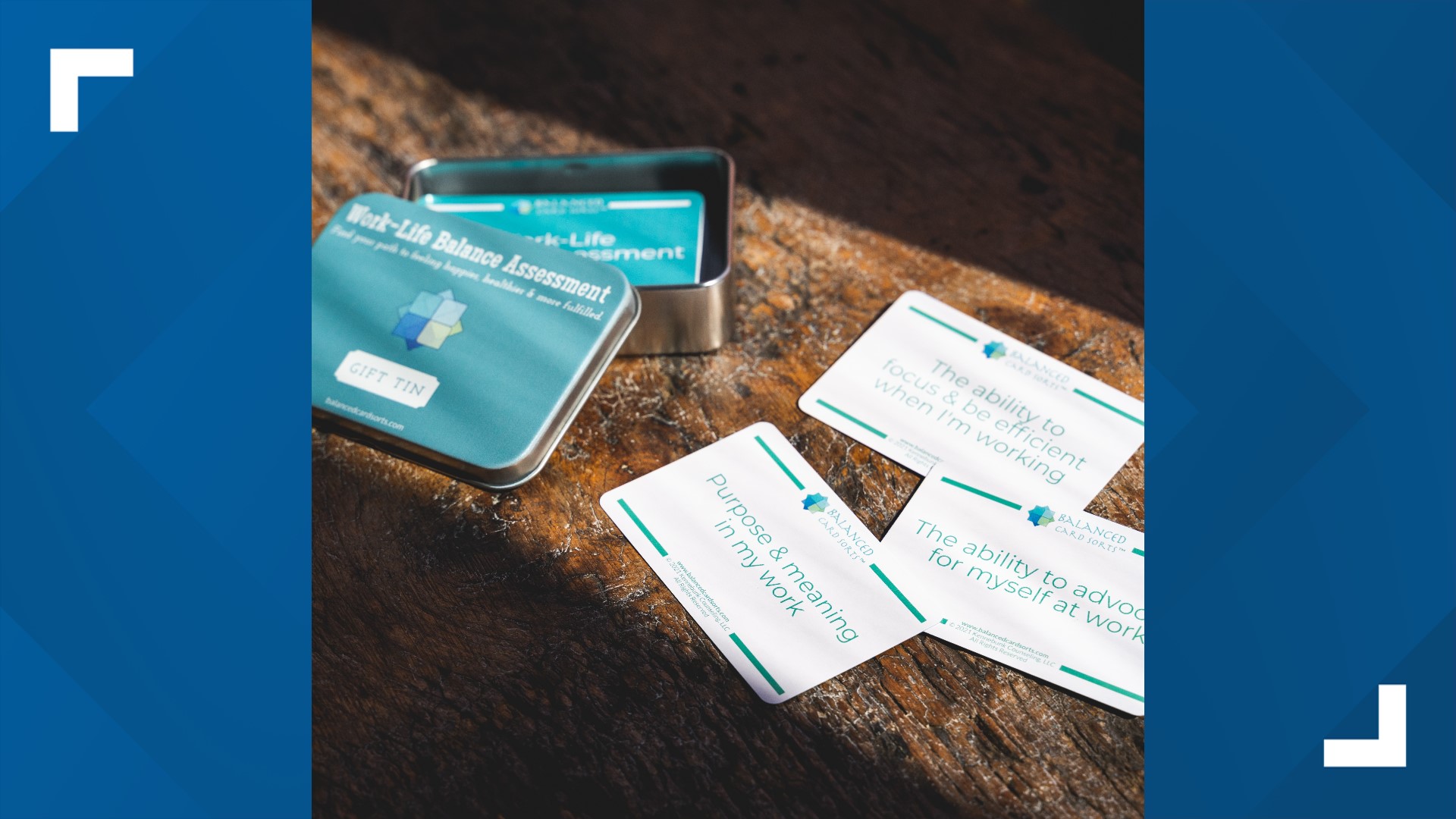KENNEBUNK, Maine — Life as we once knew it has looked almost entirely different for the past two years. For many Americans, that includes how we've been working during the pandemic, with many industries pushing the work-from-home model, making it harder to draw the line between career and personal time. In some cases, an increased amount of pressure overall has led to feelings of burnout.
Angela Fileccia, director of the Healthy Life Resources program at Northern Light Acadia Hospital, said stressors usually happen in one area of life. In contrast, the pandemic has resulted in stress at work, home, day care, the grocery store — you name it. Fileccia said stressful situations are also usually time-limited, but that hasn't been the case with COVID-19.
"Every single aspect of life is stressful because every aspect of life has been impacted by the pandemic, which is leading to sort of that more and more mental exhaustion, physical exhaustion," Fileccia said.
Anush Hansen at Kennebunk Career and Wellness Counseling was inspired at the onset of the 2020 lockdown to help people address burnout. She was experiencing a drop-off in clients at that point because of the unknowns and was trying to adjust to changes in her own home, with two school-aged kids doing remote learning. Using information from clients about their priorities and values in life, she created the "Work-Life Balance Assessment" card sort tool. People can use it to categorize, organize, and visualize what they want more of, have enough of, and want less of in their personal and professional lives.
"What I was hearing from clients a lot is that, 'I can't do anything right. I'm so overwhelmed with my work. I'm so overwhelmed in my home life,'" Hansen said about her inspiration.
Hansen said these cards are designed to help people come up with specific things they would like to change and then take intentional but small steps to get there. Ultimately, the goal is to help people feel more balanced, fulfilled, and healthy. You can still feel excited about what you do for a job — but you can also make time for personal priorities. She said allowing yourself to have breaks makes you a happier, more efficient, and more productive employee — and that helps employers in the long run.
"We know it's not working for people anymore to work themselves to exhaustion," Hansen said. "It's not serving anybody well."
Kristin Ryan understands that dilemma firsthand. In June of 2021, she got a new job in Portland after spending 20 years working at an independent school outside the state. As she climbed the ranks into the administrative level, she said it became more difficult to set boundaries, even though she loved her work and her colleagues.
"It took a lot of energy and time and responsibility, and I didn't actually know how to find balance," Ryan said.
Ryan connected with Hansen in 2020 and used the card sort tool to ultimately discover she needed a change. Now, she works at the Olympia Snowe Women's Leadership Institute, which requires a similar skill set but has allowed her to take a step back from being directly on the frontlines.
"I do want more time for myself personally — not just for my friends, but I need to take time with me and do things that are creative [and] be outside," Ryan said about her newfound balance.
She said in a society that preaches "go, go, go," it can sometimes be hard for people to find that when they're constantly looking at their next career step.
"People don't take that step back to say, 'Okay, I know that I have achieved "x." I know that I'm going to score "y" — but what do I really want?'" Ryan said.
The narrative at some companies could be changing. Laura Rinck is the president of Rinck Advertising and said in March 2020, the company's Lewiston- and Maryland-based offices closed, forcing employees to work from home. She said, in some ways, that has allowed for more freedom for people — but in other ways, it has made it difficult to strike a balance in life. As a result, Rinck connected with Hansen to get a card sort tool for each of her employees. She said she wants to be proactive instead of reactive in addressing mental health struggles.
"I think it says to our employees, our team, 'They're serious about this — about my mental health, about my work-life balance,'" Rinck said, later adding, "It's incumbent on us to invest in that — to invest in them personally and not just talk the talk but walk the walk."
Rinck said through one-on-one conversations, she and her team discovered their employees actually feel like they're putting in more time and hours working remotely. So, she has plans to start 15-minute employee engagement meetings every week to help managers touch base with people about their personal and professional goals.
"We don't want employees who are emailing at midnight or texting from the sidelines of the soccer field," Rinck said.
Fileccia said if you're not feeling fulfilled by your work or don't like what you do, you might want to reconsider your career. If you can't concentrate or are having a hard time getting work done, it may be a sign you need to rest. To deal with burnout in the moment, she recommends taking micro-sized breaks (so, taking five minutes to yourself every hour) and not waiting for the weekend to get relief.
If you're interested in trying Hansen's "Work-Life Balance Assessment" card sort tool, you can do so by clicking here.

